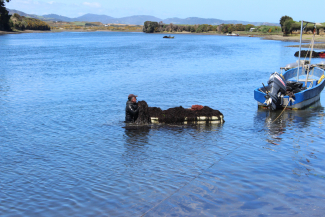FILTER
Displaying 261 - 270 of 3722 publications
The present thirty-one percent of overall forest cover is not enough to conserve biological diversity globally and so the need to conserve the last global forests (Powlen et al., 2021). Kenya has...
| Peer Reviewed | KenyaPurpose This study evaluated the use of Internet-mediated platforms for food supply chain among Ukrainian farmers due to the war. Design/methodology/approach The study was an online survey involving…
| Peer Reviewed | NigeriaThe COVID-19 pandemic has re-emphasised the critical role of accessible, affordable and quality childcare to reduce and redistribute the gender unequal distribution of unpaid care work as an…
| Peer Reviewed | ChinaFood security remains a major concern, as efforts to commercialise and specialise in agricultural production have been constrained. This is partly due to land scarcity, compelling smallholder farmers…
| Peer Reviewed | Ghana
In examining anthropometric failure measures in India, a consistent negative wealth gradient was identified. Notably, over 60% of the burden of anthropometric failure is concentrated within the two...
| Peer Reviewed | IndiaAbstract Providing a public good that causes a local harm to its host poses two problems previously unexplored together: where to locate it and how large it should be. We propose a mechanism combining…
| Peer Reviewed | ColombiaAbstract The climate crisis and poor urban air quality have put the transport sector decarbonization on the agenda for most governments, who have focused on switching propulsion technologies, leaving…
| Peer Reviewed | ColombiaClimate change will have significant long-term impacts on people, ecosystems, and the global economy. To avoid catastrophic impacts, the world must mobilize finance at scale to deliver rapid and…
| Report |
The researchers evaluate the API's methodology by applying it to the production of mussels, algae, and northern scallops in Chile. They found differences in the aggregated performance and inputs...
| EfD Discussion Paper |
The informal sector is an important part of Kenya’s economy and contributes significantly to employment creation, production and poverty reduction. The Micro, Small and Medium Enterprises (MSME)...
| Peer Reviewed | Kenya
